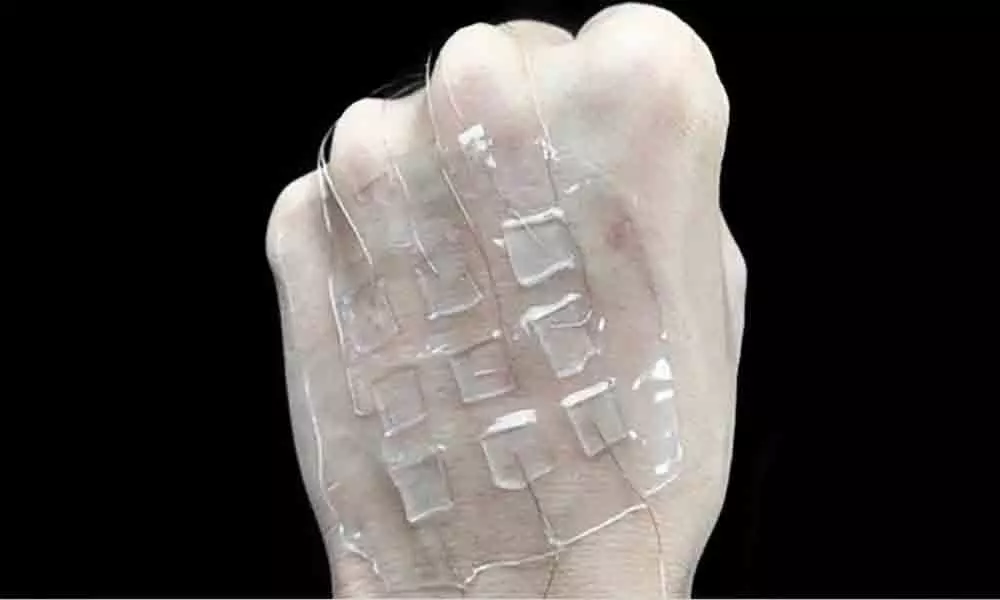This artificial skin can help in rehabilitation, enhance Virtual Reality

Scientists have developed a soft, flexible artificial skin made of silicone and electrodes that can help in rehabilitation and enhance virtual reality (VR).
Scientists have developed a soft, flexible artificial skin made of silicone and electrodes that can help in rehabilitation and enhance virtual reality (VR).
Just like our senses of hearing and vision, our sense of touch plays an important role in how we perceive and interact with the world around us.
The skin's system of soft sensors and actuators enable the artificial skin to conform to the exact shape of a wearer's wrist, for example, and provide haptic feedback in the form of pressure and vibration.
Strain sensors continuously measure the skin's deformation so that the haptic feedback can be adjusted in real time to produce a sense of touch that's as realistic as possible, said the team from the Swiss Federal Institute of Technology in Lausanne.
"This is the first time we have developed an entirely soft artificial skin where both sensors and actuators are integrated," said Harshal Sonar, the study's lead author.
"This is ideal for wearable applications, such as for testing a patient's proprioception in medical applications," said Sonar, in the journal Soft Robotics.
The artificial skin can be stretched up to four times its original length for up to a million cycles. That makes it particularly attractive for a number of real-world applications.
For now, the scientists have tested it on users' fingers and are still making improvements to the technology. "The next step will be to develop a fully wearable prototype for applications in rehabilitation and virtual and Augmented Reality (AR)," said Sonar.
















